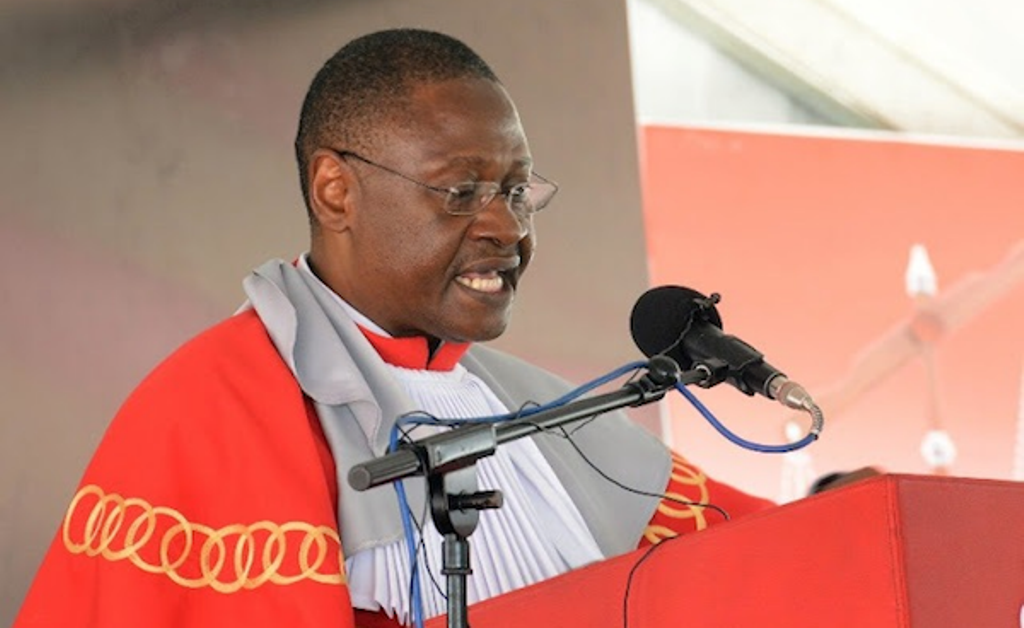AfricaPress-Tanzania: THE Chief Justice of Tanzania, Prof Ibrahim Juma, has published the plea bargaining rules, which impose, among others, duty to prosecution to fully disclose evidence obtained during investigation of the accused person to enable him or her make an informed decision.
Prof Juma published the Criminal Procedure (Plea Bargaining) Rules, 2021 (Rules) under section 194H of the Criminal Procedure Act (CPA) on February 5, 2021 vide Government Notice (GN) No.180 of 2021, for better carrying out of the provisions of plea bargaining in the Act.
The rules address, among others, the scope of plea agreement, procedure to be adopted, the time limit within, which a plea agreement should be concluded and the prosecution’s duty to disclose evidence to the accused during bargaining.
They also set out the procedure for initiating a plea agreement; show the involvement of the victims of crime in bargaining the value or form of compensation to be paid; sentencing recommendations to be considered by the court and the form of application to set aside conviction founded on plea agreement.
When contacted for any reaction, none of the lawyers, both from the prosecution and defence side were ready to comment on the rules in question.
Before making of the rules, the practice has been that the accused initiates a plea bargaining request by writing a letter to the Director of Public Prosecution (DPP). Under the current practice, the Court was only involved after the conclusion of the agreement between the prosecution and the defence.
The rules, however, require parties to the case to engage the Court from the beginning by notifying it orally or in writing of the intention to enter into agreement.
In terms of Rule 4 (1), a plea agreement may be in respect of a promise to plead guilty to a charge in exchange for a recommendation for a lesser sentence and a promise to cooperate as a witness for the prosecution in exchange for reduced charges or a reduced sentence or to both.
According to the rule, it may also be a plea of guilty to a minor and cognate offence; a lesser offence and, or, some charges or counts in exchange for a withdrawal of one or more, charges or counts, in case of multiple charges.
The Court is vested with power to fix a time within which a plea agreement should be concluded and shall give directions if the prosecutor and the accused persons or his representative are in court and if they are not in court it shall summon them to appear on date fixed for directions.
In terms of Rule 5 (2), where the court is satisfied that the notification has been made voluntarily, it shall prescribe time, not more than 30 days, for the prosecutor and the accused or his representative to negotiate and conclude a plea agreement.
Unlike under the Act where disclosure of evidence depended on the type of Court an accused was at, under the rules, the prosecutor is duty bound to disclose to the accused the evidence obtained during investigation, a move described as big step in improving administration of criminal justice in Tanzania.
Rule 6 (1), the prosecution shall, in the interest of justice, disclose to the accused all relevant information, documents or other matters obtained during investigations to enable the accused to make an informed decision with regard to plea agreement.
In terms of Rule 6 (2), the disclosure made under sub rule (1) shall not compromise state security, security of witnesses or integrity of judicial process.
The rules also give the victims the right to be involved in the plea bargaining process especially to protect their right to compensation or restitution. The victim can even initiate a proposal to include compensation to him in the agreement.
According to Rule 7 (1), the prosecution shall, before entering into a plea agreement, consider the interests of the victim and the community and shall have due regard to the nature and the circumstances relating to the commission of the offence and the criminal record of the accused, if any.
The prosecution, under the rules, shall also take into consideration the loss or damage suffered by the victim or complainant as a result of offence and the interests of the community as well as any other relevant information.
Furthermore, the rules have cleared the worry of many accused and defence counsel of entering into a plea agreement of an offence punishable with a minimum statutory penalty.
In Tanzania, all economic offences, sexual offences, drug offences and many other offences attract severe minimum statutory penalties. Many accused have been hesitant to enter into a plea agreement for fear of being sentenced to such severe minimum statutory custodial sentences.
The rules allow the accused and public prosecutor to propose a penalty in the final plea agreement. Although the rules give the Court discretion to impose a lesser penalty than the statutory minimum penalty prescribed by the law, the Court is not bound by the sentence recommended by the parties.
Furthermore, the rules prescribe the format of a plea agreement and the form of an application for setting aside a conviction founded on plea agreement. Formerly there was no statutory format of the plea agreement.







